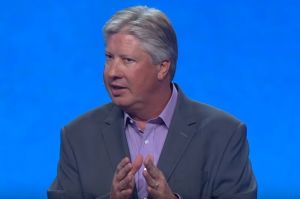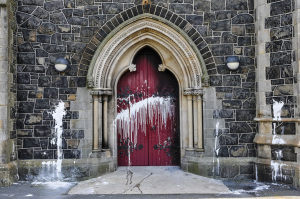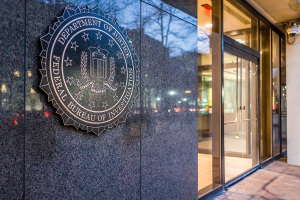Humility Defines New Pope and Should Define Us Too
For a moment last week, humility supplanted sequester as the go-to word. Before that moment passes completely, we do well to reflect on the novelty, audacity and power of humility-why it attracts us. And the absurdity of striking a humble pose for tactical reasons.
In his first appearance on the Vatican balcony, the new Pope Francis wore the simple white cassock, not the red finery, and he earnestly sought the prayers of the faithful. Later that day he returned to his pre-papal lodgings to fetch his own luggage and pay his own bill, personal errands consistent with his decades of life and service in Argentina, where he took public transportation, spoke with self-deprecating good humor, walked the barrios as a friend of the poorest of the poor, and washed the feet of AIDS patients. The name Francis trails long roots of humility and simplicity.
As a semi-jaded trial lawyer, I study these media descriptions. As a man who lives by shaping and deconstructing persuasive narratives, I see a man at just the right time step into one of the most influential and consequential positions on earth, and turn standard leadership upside down.
One Cardinal said he cast his vote on the main criterion that he wanted a Pope who would remind people of Jesus.
Jesus' management style clearly colored the nascent church. In its earliest days, in the context of one of the world's proudest and most powerful empires, small groups of relative nobodies gathered in modest houses to worship the One who "existed in the form of God," but poured himself out for others, the One who became a slave and "humbled himself to the point of death, even death on a cross."
Early Christians encouraged one another to imitate their founder specifically with respect to his self-giving. At some point, probably with the so-called conversion of Constantine, Christians' identification with the humility and simplicity of Jesus increasingly grew lost in the mix of politics, religion, and historical exigencies, notwithstanding the occasional Francis of Assisi or Mother Theresa.
And now the Catholic Church has a Pope that, in the words of Augustine, imitates a "humble God." What does that mean so much to us? And what might it mean for us? For the way we live and work and lead? I quickly gain two simple reminders: First, pride is unsustainable. We can learn this from great novels (for business-minded movers and shakers like me, Tom Wolf nailed the theme in "Bonfire of the Vanities" and "A Man in Full"). Or we can pay attention to the destructive impact of our own hubris in our own lives and the lives we affect. Failed business ventures, bad decisions and dying relationships frequently trace directly to pride. Ultimately, all of our proud maneuvering will come to an end. We all return to dust.
Second, the only antidote to pride is humility. There is no middle ground. The default position for most of us tends to be self-absorption and self-justification. The humility virtue grows best in a community of candor. We need people around us who speak the truth and hold us accountable to listen. Authentic humility roots in reality. We need to reflect often on the things we don't know, to confess the wrongs we commit and the mistakes we make, to be thankful for our blessings, and to remember that we are dust. These are some of the ways we can cultivate authentic humility and check our pride.
And finally, a word of warning. The most pernicious form of pride may be bogus humility. Think Tolstoy, who struck a well-publicized pose in peasant garb while living in self-absorption. Think of many celebrity preachers and political leaders, including Hugo Chavez, who, after accumulating a vast fortune as a "champion of the poor," recently returned to dust.
Pope Francis has asked for the prayers of the faithful. I am not a member of his flock, but I'm watching, and I pray that he can hold to humility in his new role. And I'm praying that rest of us draw inspiration from this remarkable leader who seeks to imitate a humble God.





























